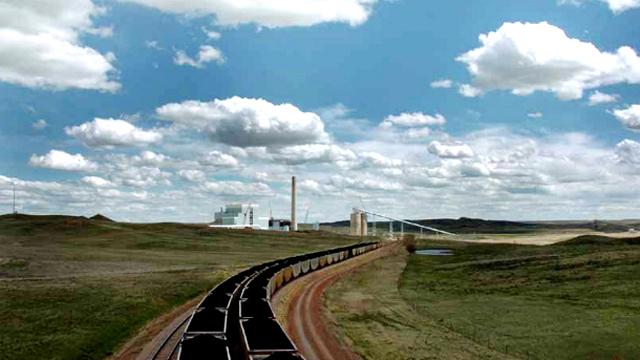
The federal government has no idea how much gold, copper and other hard-rock minerals are being extracted from public lands each year — nor how much the minerals are worth — because the companies licensed to operate the mines pay no royalties, according to a report the Government Accountability Office will make public Wednesday.
The new report, requested by Rep. Raul M. Grijalva and Sen. Tom Udall could spur a renewed push to reform the 140-year-old law governing U.S. hard-rock mining. Under the General Mining Act of 1872, the government charges mining companies $189 to locate a claim and then $140 annually to maintain it after the first year. What the companies extract from public terrain is theirs to sell on the open market.
The GAO report — which estimates that extraction of oil, gas, natural gas liquids and coal on federal and Indian lands produced $11.4 billion in federal revenue last year — said it could not make a similar assessment for hard-rock minerals. Federal agencies generally don’t collect data on the value of hard-rock minerals taken from public land because the only reason to do so would be to calculate royalties, the report states.
Back in 1993, when metal prices were much lower, however, the Interior Department estimated that sales of hard-rock minerals from federal lands totaled $6.41 billion.
“This should be front and center of the natural resource agenda for this next administration,” Udall said in a phone interview. “These hard-rock minerals belong to the American people, and today we’re quite literally giving our gold and silver away.”
The rise of metal prices over the past decade — gold has soared from $300 to $1,700 an ounce, for example — makes the industry a tempting target for lawmakers looking for new sources of revenue. “Everybody’s penny-pinching, and here’s a penny we haven’t pinched,” Grijalva said in an interview.
Chandler Smith, spokeswoman for Sen. Dean Heller (R-Nev.), said her boss “will be engaged in any effort to reform or update the Mining Act of 1872,” adding that any overhaul “should be done in a thoughtful manner that will not cost jobs or negatively impact Nevada’s economy.”
Last year, Interior Secretary Ken Salazar and Robert Abbey, then Bureau of Land Management director, reached out behind the scenes to some American mining companies, raising the idea of charging royalties based on the companies’ net revenue from their federal-land operations. Abbey, who retired from the agency earlier this year, said in an interview that he believes a compromise could be struck.
“They’re walking away with really significant revenues...with no return to the American taxpayers,” Abbey said.
While both Democrats and Republicans have tried to overhaul the nation’s mining laws for decades — Udall’s father, Interior Secretary Stewart Udall, called it “the most important piece of unfinished business on the nation’s resource agenda” when he left Lyndon B. Johnson’s Cabinet in 1969 — neither party has managed to overcome industry opposition.
Carol Raulston, a spokeswoman for the National Mining Association, said the industry is now focused on making it easier to extract rare-earth metals and other strategic minerals by speeding up federal permitting and reducing potential lawsuits.
Several mining companies, including Freeport-McMoran Copper & Gold, did not respond to requests for comment Tuesday. But Newmont Mining Corp. spokesman Omar Jabara, whose firm’s top officials discussed royalties with Salazar and Abbey last year, wrote in an e-mail that his company is open to paying royalties based on future net revenue.
Michael Dudas, managing director and mining analyst for Sterne Agee, said while metal ore firms have become a tempting revenue target for politicians across the globe recently, “what’s been bedeviling the companies is [that] the cost of building a mine, permitting a mine and, if you do that, operating a mine have risen at a pretty good clip as well.” If they face additional costs in the United States, Dudas said, they may “look elsewhere” to operate.
Industry officials say they contribute to the economy even without paying royalties.
Responding to an inquiry last year from Grijalva about the value of uranium that Denison Mines Corp. had extracted from public land, company chief executive Ron F. Hochstein did not divulge any specific figures. But he said the metal ore industry overall accounted for nearly 290,000 jobs and contributed $37.2 billion to the nation’s gross domestic product, according to an industry-commissioned PricewaterhouseCoopers study.
Grijalva, who called mining firms “outright arrogant” for failing to disclose what they’re taking from public lands, said at a minimum these companies should report the volume and value of what they’re extracting.
The Obama administration has included both disclosure and federal royalties for hard-rock minerals as part of its budget proposals for the past two years, without success.
3 WAYS TO SHOW YOUR SUPPORT
- Log in to post comments













